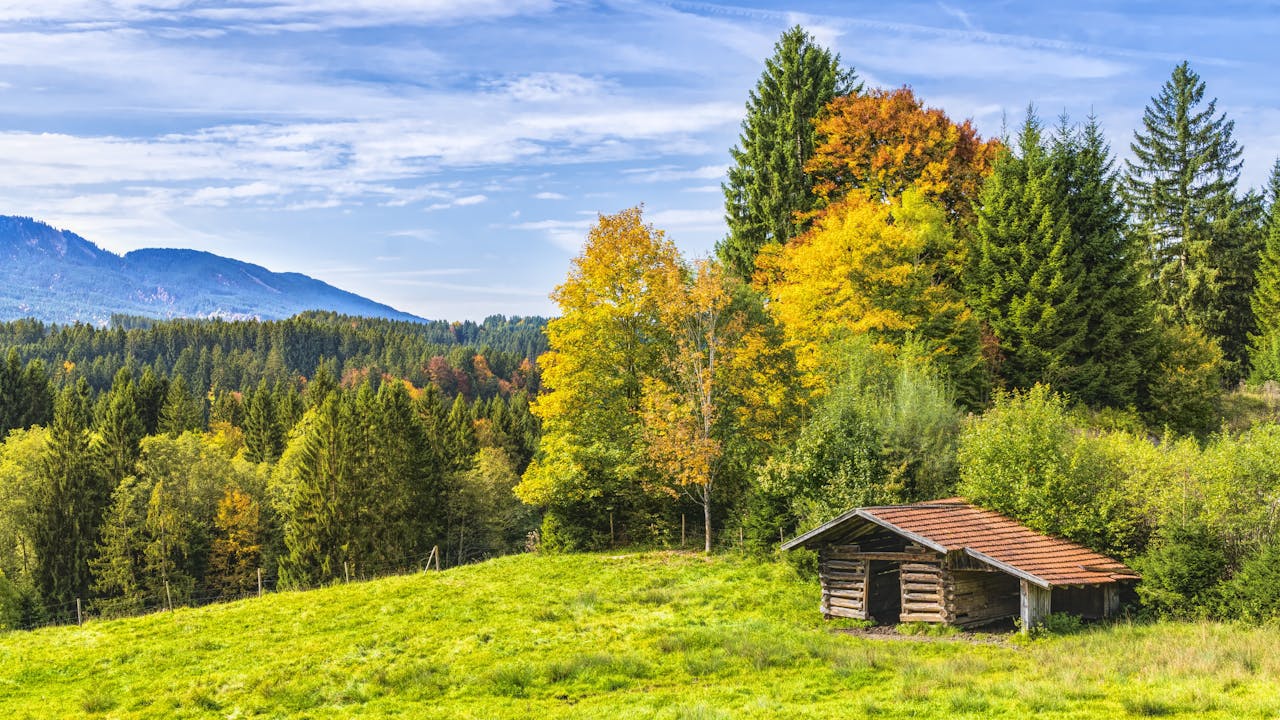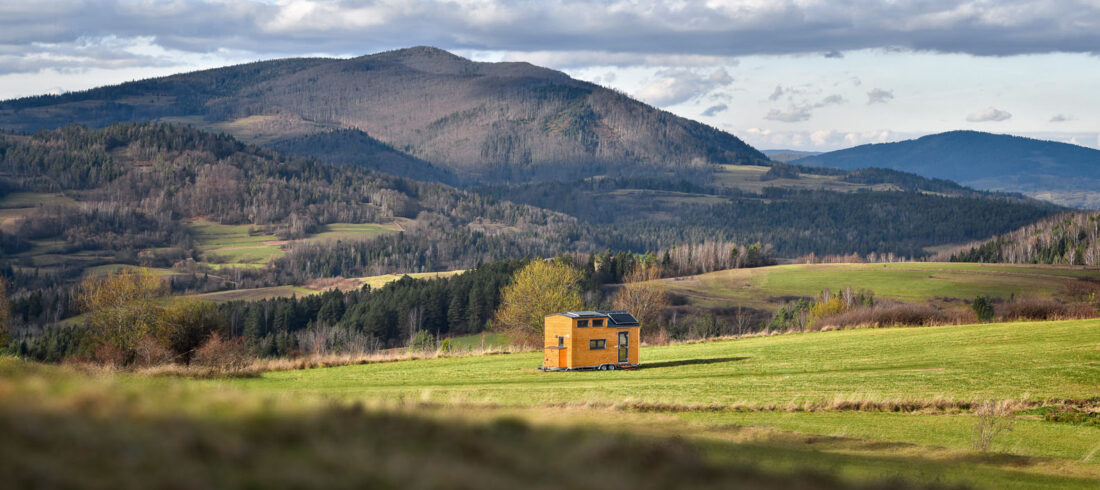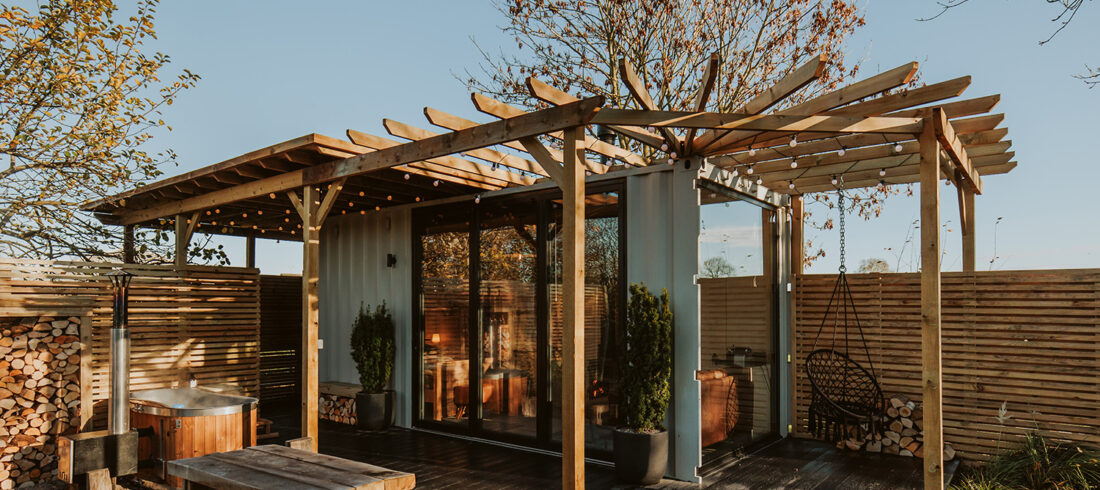Have you ever dreamed of escaping the hustle and bustle of modern life?
How often have you found yourself filled with a number of complex emotions, none of them nice, at the sight of an inexplicable yet wholly predictable delay while standing on a packed platform waiting for the overcrowded metal tube that shuttles you to your dreary 9-5? Perhaps you’re sick to death of the steadily increasing cost of existing. Nowadays, it seems to cost £20+ to simply breathe in a shop, let alone fill your fridge. Similarly, rent prices continue to skyrocket, utility bills are going up and up while energy companies post record profits, and the financial strain of attempting to live in the city is overwhelming for the vast majority.
If any of the above sounds like you, going off the grid and living self-sufficiently could present you with an escape route. Imagine trading traffic jams for peaceful sunsets, and swapping the sounds of noisy neighbours with banshee-like babies for the calming noises of nature. For many, the allure of escaping from the grid and living with more self-sufficiency is more enticing now than ever. But how doable is it? Let’s explore this concept further together.
Off Grid Self-Sufficient Living: A Cyclical Lifestyle
Living off the grid isn’t just about disconnecting from utilities: it’s a complete lifestyle shift. It’s about hitting the emergency brake on the life you’re told to lead and instead embracing a cyclical way of living where everything you need comes from the resources around you and from your own hard work.
In the UK, where the countryside is rich, verdant, and diverse, this lifestyle is not only possible, but becoming increasingly popular.
One of the core principles of off-grid living is sustainability. It’s about reducing your waste and doing your part to make the most of what nature provides. From growing your own food to harnessing renewable energy sources, going off-the-grid and living self-sufficiently encourages a deeper connection with the world around us.
Imagine the prospect of waking up to the sounds of birds chirping, knowing that the energy that’s powered by your home comes directly from the planet. The food you eat originates from the soil under your nails. Absolutely none of which harms the planet around you. You’re responsible for your own life in a way that cannot be recreated in the city.
Off-grid self-sufficient living isn’t always just as simple as parking up in a field and living off the land though; it’s also about utilising the passion and knowhow of the keen community. Many passionate off-gridders will gladly pool their knowledge, offer their support, and even share resources for those new to the lifestyle.
While going off the grid and living self-sufficiently is definitely possible, it isn’t without its challenges. It will require hard work, dedication, and a willingness to adapt to this new way of life. But for all those out there who are willing to embrace this journey, the rewards are truly immeasurable.
How to Live Off The Grid With No Money
Contrary to popular belief, going off the grid and living self-sufficiently doesn’t actually need to cost you an arm and a leg. In reality, it’s actually possible with minimal financial upkeep. By engaging in work exchange, joining an eco-community, or building your life from scratch, you can escape modern society while fostering growth and environmental conservation.
Living off the grid is a journey, not a destination. It’s all about stepping away from the ratrace and embracing a much simpler, more sustainable way of living. So why not take that important first step? With a little bit of creativity and resourcefulness, going off the grid and living self-sufficiently is possible for all budgets.
Here are a few practical tips to help you get started:
Start Out Small
You don’t need to go straight in and buy sprawling expanses of land in the countryside. Nor do you need to jump in with both feet and invest in the latest pricey tech to help you live off the grid.
In situations such as this, it’s always recommended to start off with small changes. This can include growing your own herbs or doing your part to start cutting down your energy consumption.
Be Creative
If you’re looking to launch your new life away from the grid, creativity is key. Think of what you can do to think outside the box to make your dream lifestyle as accessible as possible. Creative measures people may look to implement to save some money include:
- Repurposing old materials to create furniture for your off grid home
- Make your own clothes or repair any damaged clothing
- Skip the supermarket and make your cleaning products from scratch using natural ingredients
Utilising such creative methods will help you to reduce your reliance on store-bought items, saving you money and furthering your disconnection from the grid in the process.
Do It For Yourself
There are always plenty of DIY projects you can undertake to help you live off the grid without making the total cost skyrocket. The first step to this end is investing in some basic tools and whatever resources you might need. As long as you’re willing to get your hands dirty and learn new skills, the world is your oyster.
From building a raised garden bed to grow your meals, to self-installing a wind turbine on your property, there are plenty of projects you can pursue.
Try Before You Buy
For those of you out there enticed by living off grid, there are options out there that allow you to take the lifestyle out for a test drive.
You can experience living off the grid in one of our very own off grid stay properties. This experience allows you to dip your toes into the waters: you will arrive at an available off grid property, you can sit out front while the sun sets, make your own meal amidst the beautiful British countryside, sleep in total tranquillity, and wake up to the sounds of peace. All of this without needing to commit your savings.
Another excellent way to get started can be with work placements. Platforms like Worldpackers exist to connect people looking for unique experiences in exchange for work.
There are thousands of such locations around the world, with many of them being in off grid communities, created by people that could share very similar views of the modern world as yours.
This path allows you to live off the grid without needing to worry about spending money on things like housing or even food, while also allowing you to gain some valuable experience across a number of important aspects of off-grid living.
The beauty of both Off Grid Stays and work placements are that you can either search for something close-to-home, or you can spread your wings a little and experience somewhere completely new.
Do Your Research
If you want to live off the grid for as little money as possible, you shouldn’t be jumping to purchase the first property, the first equipment, the first plots of land you see.
There is always variation in price and quality with all of the above. And it is your job to find one that sits perfectly equidistant between these two core needs. For example, land is cheaper in some parts of the UK and Europe than others. However, some of these areas might not be appropriate for your needs.
The way to find the best development plot for your budget will likely require you to look as far away from the cities and tourist areas as possible. Research online listings and contact people to find out about available plots.
Swap Goods and Services
With a limited budget, you’ll need to find alternative ways to source the things you need. A great option is to barter with neighbours.
Bartering allows you to exchange goods and services, so you can acquire what you need without money changing hands. It also helps to foster a sense of camaraderie with the people in your community.
An example of how you can do this would be swapping some of your time fixing fences on the nearby farm in exchange for some eggs, milk, etc. Another way you can swap goods and services can actually net you land to live on. Some people with large plots of land may be receptive to letting somebody live in a section in exchange for the added security it can bring, or for keeping an eye on livestock in fields, or undertaking various duties in the area.
Find Alternative Income Streams
While it may sound attractive to many, it can be difficult to cut ties with traditional currency entirely. There are still some costs that you’ll be expected to pay, and some goods and services likely won’t be exchangeable or open to barter.
With this in mind, going off the grid and living self-sufficiently can be made that bit easier if you find an alternative source of income. With ways to raise your own money, you’ll be able to pay for any goods/services that you can’t get for free/as part of an exchange.
Some ideas to help get you started include:
- Making items from the natural materials found around your home and selling them at local markets or online.
- If you are planning a trip, you could rent your space or even consider keeping space on your land available for tourist use, for a fee.
- Offer services to people in your community
- Sell any excess produce you grow on your land
- If you have internet access on your property, you can pursue a remote job that allows you to earn a wage without needing to leave your off grid home.
Live Off Grid On Your Terms
The allure of off grid, self-sufficient living is more enticing now than ever before for anyone looking to escape the mundanity of modern life. The argument is a compelling one for many. However, it’s vital that you recognise that going off the grid and living self-sufficiently is not simply a case of moving to the countryside and disconnecting from utilities; it’s a total shift of lifestyle, requiring dedication, hard work, and a willingness to embrace a new cyclical way of life.
From obvious financial constraints to the need for creative thinking and problem solving, challenges do naturally exist when you step away from the norm and look to live off the land self-sufficiently. However, the rewards are immeasurable. Whether you’re looking to reduce your impact on the environment, improve your mental wellbeing, or foster a deeper connection with nature, the benefits of this lifestyle extend far beyond just receiving less emails.
Ultimately, living off the grid shouldn’t be seen as just escaping the constraints of modern society — it’s just as much about reclaiming your autonomy and living more in harmony with the world around us, not at odds with it. So why not take that ever-important first step towards a more sustainable way of living today? If you’re determined and willing to embrace change, we know you can make a success of your new life. The possibilities are endless.
Get in touch with a member of our dedicated team today and find out what we can do to help facilitate finding you the off grid home of your dreams today in one of our converted shipping containers.









